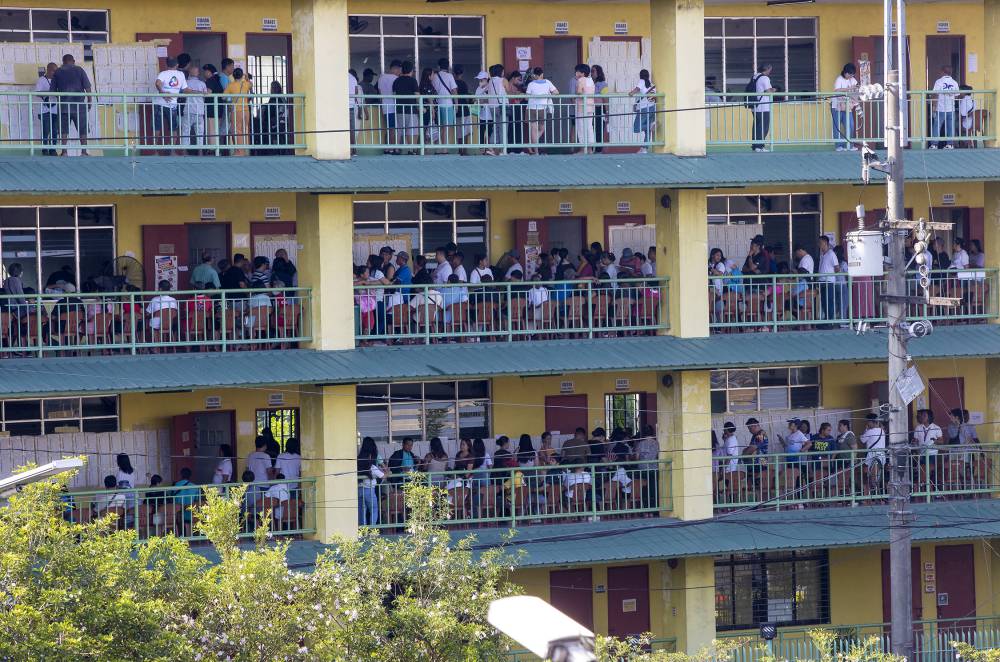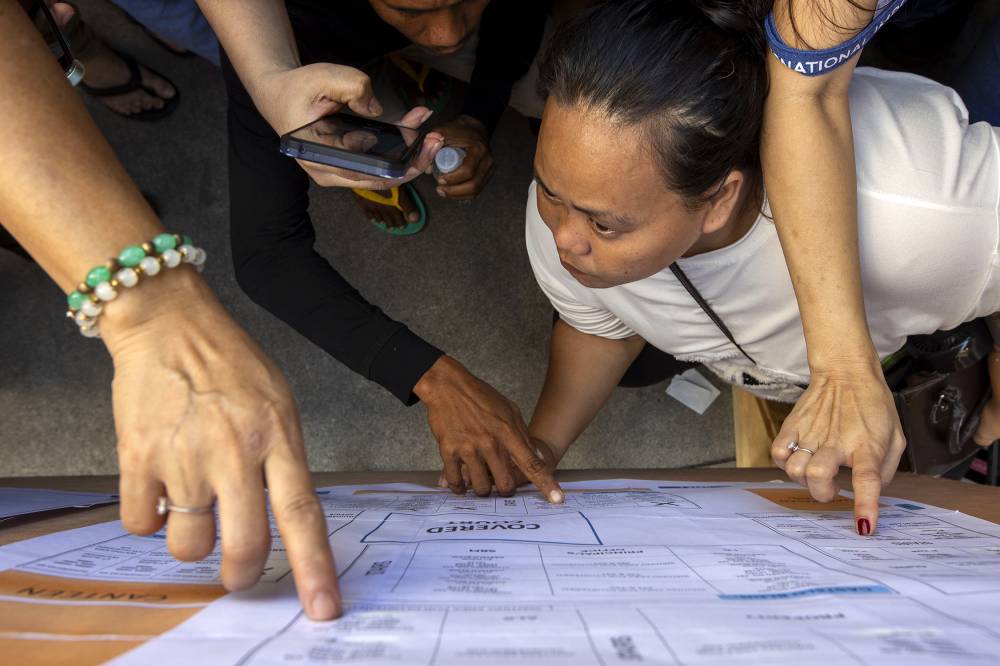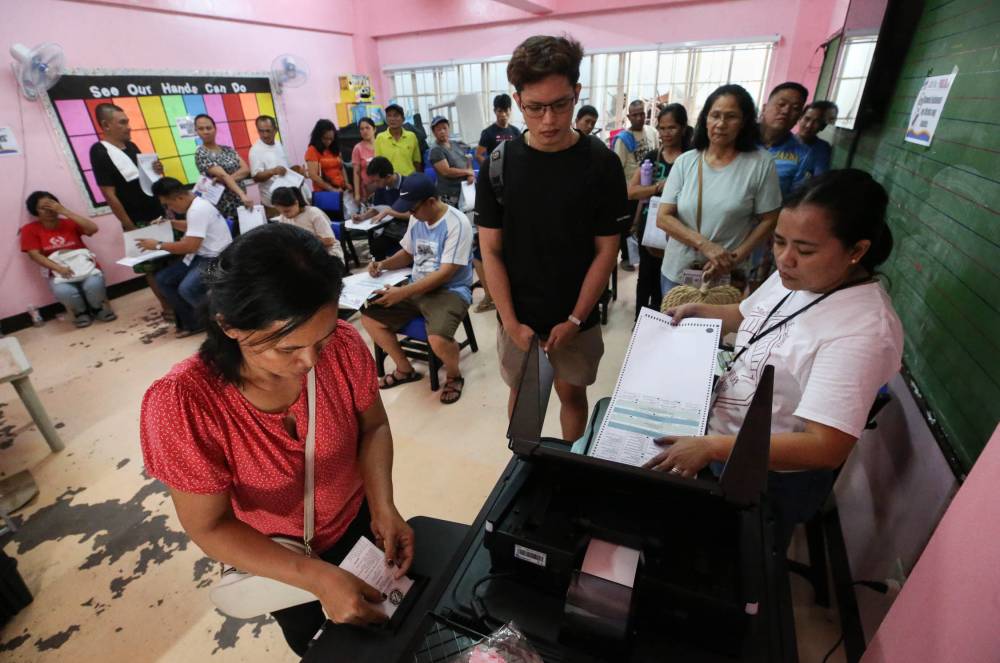Behind the ballot: What the elections were like for an Electoral Board member

You exercised your right to suffrage last Monday. You went to your precinct at 7 a.m. (5 a.m. if you belong to the senior citizen or PWD sector), or, if you didn’t feel like braving the expected “carmageddon,” you showed up as late as 6:50 p.m. You faced the longest lines ever recorded. Your dear patience wore thin, you even thought about leaving without voting, and some actually did. You felt it was your civic duty to rant online about how troubling, time-consuming, and mind-numbing the whole experience was.
Perhaps it’s best if you knew the rest of the story. Let me walk you through with shaking hands and still inflamed hips.
This year, the Commission on Elections (Comelec) extended the voting period from sunup to sundown in hopes of getting the majority to go out and exercise their rights. And oh boy, they certainly did. It’s as if the whole country wanted to be a catalyst for change, which, really, is the whole point of it. Comelec also squeezed multiple clusters into one precinct, probably to cut costs, because this latest attempt at automation is costing the commission a lot. The newly acquired automated counting machine, manufactured in Korea, is a breeze to maneuver, save for one unavoidable issue: it takes forever to read the fed ballots. But if you think about it, that’s a convenient flaw, because at least you know it’s doing its best to produce accurate results. But this meant extra minutes that we had no control over.

Each voter was also allowed to review their selections on the touchscreen, navigable by hand, and, of course, verify them through the all-important regurgitated receipt, which they would then feed into the designated receptacle.
And this, ladies and gentlemen, is exactly why you lined up for hours.
Duties
You fulfilled your responsibility as a voter on Monday but our duties as members of the Electoral Board started weeks before that. It all culminated in a 24-hour extravaganza: from retrieving the paraphernalia at our assigned time slot (ours was midnight) to finally returning them at, you guessed it, 12 midnight the next day. Factor in our disrupted sleeping patterns, with most of us only managing three hours of sleep, or, horror of horrors, no sleep at all. Whether it was out of sheer excitement or nerves, we powered through.
The next few hours, once the voting finally opened, were the words “busy” and “exhaustion” written in bold, lurid letters. You will never get it unless you subject yourselves to the highly demanding electoral process. I’m afraid this is not for the faint of heart.
But I know the perfect, most qualified people to handle this responsibility—because what do you mean we had to stand (at least as a third member) for more than eight hours, with approximately only three minutes of bathroom break, plus having to take turns to eat a quick lunch and freshen up? The temperature that day was brutal and we were all at the mercy of our Jisulife fans. But it’s all in a day’s work for a public schoolteacher. It’s territory we know by muscle memory. We live and breathe accountability, accuracy, precision.

Of course, there’s the much-publicized honoraria. As a third member, I received a total of P9,835 in cold cash, minus the tax, of course. Prior to Election Day, social media was fraught with news of an additional P2,000, which, naturally, had already been slashed as tax. It is both irksome and debatable—but that’s a subject for another day.
If there were times when we seemed antsy, it’s because, truth be told, our social batteries do run low after dealing with over 800 voters, each with their own set of demands. We just wanted a little respect, because it wasn’t easy, not at all. Yes, we signed up for it, and sure, we were lured by the promise of monetary rewards, but that didn’t make the work any less grueling.
The only time we could finally exhale, after holding our breaths for far too long, was when the results were successfully transmitted. It was also the only time the political hopefuls got to exhale, too—because it either meant public rejection or overwhelming support.
And in the end, when the dust had finally settled and the dawn of a new morning beckoned, came the quiet realization: Elections may come and go, but the teachers who serve willingly would do it all over again. Because, truth be told, no other profession has the patience or tenacity to even attempt what we do.
Ryan Leyco Faura is a senior high school teacher at a public school in Antipolo City. He has been serving as an Electoral Board member since 2010. You can read more of his work at ryanleycofaura.carrd.co.



















